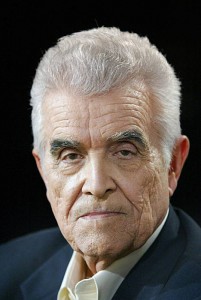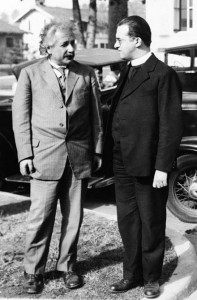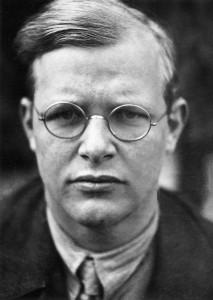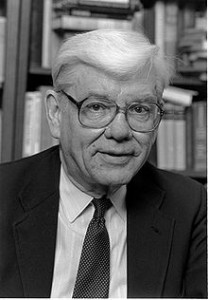Papal interviews are dangerous business for the clear teaching of faith and morals, even for conveying matters of prudential judgment. Let’s be clear: papal interviews, books written by popes and theologians are not magisterial teaching nor are they covered by the grace of infallibility. The method of ensuring truth is communicated is sometime conveyed by saying what it is not; we say it is a negative gift in the sense because infallibility keeps the Roman Pontiff from teaching error on matters of faith and morals. Infallibility, moreover, is attached to the Office of the Roman Pontiff, not to the person of the office. Seen from the perspective of a gift, of a grace, infallibility is conceived as a protective gift, not a creative one; it does not introduce new revelation or new teaching. Hence, interviews are not binding nor can they change the teaching of the Church. The news media picked up on a statement made by Pope Francis on Thursday, February 18, 2016, on the plane as he was going back to Rome where an off-the-cuff remark with regard to the use of a condom could be used to prevent the Zika virus that is a tremendous problem for pregnant women.
The current papacy is at times a bit too casual in communicating the faith because the aftermath causes great confusion in an era that gives too much credence to the print and cyber media. Just because news outlets carry “something” the pope said doesn’t mean it is true, accurate or faithful to the teaching of the Catholic Church. But the media does carry the fact that the pope is suggesting that the use of condoms to protect from the AIDS virus or the Zika virus, it does not mean that one should follow his suggestion, or think Church teaching has changed. Nonetheless, even the Catholic media gets the doctrine of the faith wrong: we need to use our reason, friends.
When we are unclear or too causal in what we say about delicate and complex moral issues, especially on matters of sexual morality, we cause harm and possible scandal. Knee-jerk reactions from so-called traditional Catholics are unhelpful, too. We do not need unprocessed opinions of people who shout: heretic at every moment an opinion from a pope is tweeted. There is such a thing as objective Truth. As Blessed John Henry Newman said, I did not leave my mind at the door. I am sure no pope, bishop, priest, deacon, sister or lay person would deliberately lead the sheep away from Jesus who is “The Way, the truth, and the Life.”
According to Jesuit Father Federico Lombardi, the spokesman, Pope Francis spoke of “the possibility of taking recourse to contraception or condoms in cases of emergency or special situations. He is not saying that this possibility is accepted without discernment, indeed, he said clearly that it can be considered in cases of special urgency.”
A reasonable set of questions surface: who decides cases of emergency, what are cases of special urgency, for how long, with what impact, who is charged with discerning, what is required of the faithful?
In 2010 Pope Benedict XVI raised similar concerns when he made a comments on condoms in his book, The Light of the World. You may recall that His Holiness “spoke about the use of condoms in the case of risk of contagion by AIDS.” The journalists went to town and asserted points that the pope did not say or intend. As a result, the Holy See’s office on faith and morals stepped in to clarify. The Congregation for the Doctrine of Faith said, “A number of erroneous interpretations have emerged” that have “caused confusion concerning the position of the Catholic Church regarding certain questions of sexual morality. The idea that anyone could deduce from the words of Benedict XVI that it is somehow legitimate, in certain situations, to use condoms to avoid an unwanted pregnancy is completely arbitrary and is in no way justified either by his words or in his thought.” The CDF further reminded us: “An action which is objectively evil, even if a lesser evil, can never be licitly willed.”
Let me reiterate: interviews given by the hierarchy, like the one given by Pope Francis on the use of contraception, cannot change Church doctrine. The 1968 encyclical Humanae Vitae, Blessed Pope Paul VI taught that the Church’s long-standing and definitive teaching that artificial contraception (e.g., condom use) is “intrinsically wrong.”
And for the record, it is held by reasonable and well-formed theologians that Pope Paul VI never said the nuns in the Congo could use contraception to protect themselves against rape. There has been a very significant error on the part of the media and certain theologians of aligning the Pope with teaching something contrary to the faith. According to Dominican Father Brian Mullady, “Pope Paul VI never taught that nuns threatened with rape could use contraception. This was an anonymous opinion stated by some member of the Congregation of the Doctrine of the Faith which went viral at the time. It was never a formal teaching of any Pope but caused much discussion among moralists and is the only example of anyone recommending such an action.” YET, by the Pope’s silence on the issue he may have altered the practice and teaching of the Church in favor of a less than accurate and pastoral datum. UPDATE: You may want to read John Allen’s piece on this matter at CRUX.
THE answer to the Zika virus spreading: do not have sex. No EVER dies from not having sexual intercourse. This stance, I believe, is reasonable and consistent with divine revelation and the consistent teaching of the Church matters of sex, life and human flourishing. The dignity of the person, the respect for the other, the notion and reality of self-gift in sexual intercourse in marriage what Jesus taught and lived and died for. Condom use to stop the spread of the virus is not good advice; neither is it good science.
So, as Catholics, we hold to the fact there is the grace of infallibility which only covers ex cathedra pronouncements on faith and moral, not interviews.
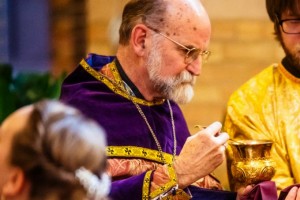 A man who followed Christ to the priesthood and to the personal companionship in the spiritual life died recently. Jesuit Father Raymond Thomas Gawronski, 65, died after living with cancer on 14 April 2016. His most recent ministry was to serve as professor of dogmatics at St. Patrick’s Seminary and University in Menlo Park, California.
A man who followed Christ to the priesthood and to the personal companionship in the spiritual life died recently. Jesuit Father Raymond Thomas Gawronski, 65, died after living with cancer on 14 April 2016. His most recent ministry was to serve as professor of dogmatics at St. Patrick’s Seminary and University in Menlo Park, California.
